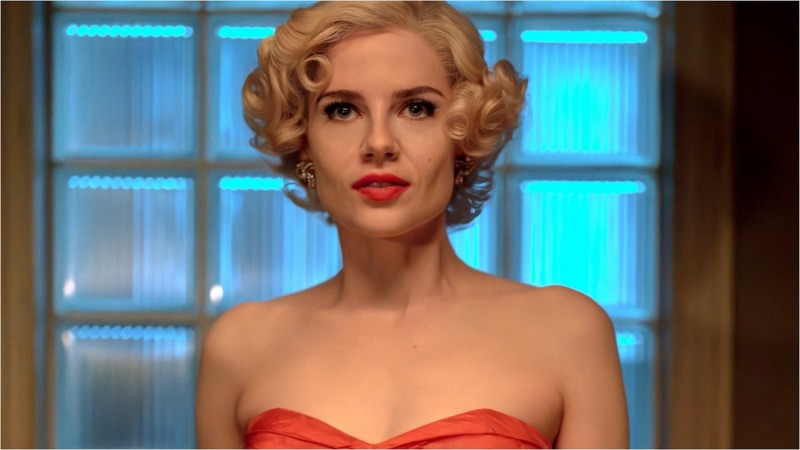Lucy Boynton Shines In BritBox True Crime Drama A Cruel Love: The Ruth Ellis Story
Photo: Courtesy of BritBox
True crime is a tricky business. Dramas that attempt to recreate well-known criminal investigations, familiar murders, or famous trials must walk a fine line between the sensationalistic and the stolid, between the exploitative and the respectful. But no one is doing the genre better right now than the Brits. From Until I Kill You and The Long Shadow to Des and Little Boy Blue, British television in recent years has been chock full of thoughtful, frequently devastating crime series based on true-life events that combine compelling drama, thoughtful social commentary, necessary emotional catharsis, and a nuanced presentation of everyone involved.
Many (most?) Americans are probably unfamiliar with the subject of BritBox’s latest true crime series, A Cruel Love: The Ruth Ellis Story, but that doesn’t stop its story from packing a powerful punch. The last woman executed by hanging in Britain, Ruth Ellis was convicted of murder in 1955 after shooting her lover, racing driver David Blakely. Though evidence suggested Blakely had abused Ellis for years and perhaps even that she’d been encouraged or influenced by another man to commit the crime, she was charged with murder instead of manslaughter and the jury only deliberated her fate for 20 minutes. The outcry over her execution was the tip of the spear that would, a decade later, help to abolish capital punishment in the United Kingdom. But this is not, if it wasn’t already glaringly apparent, a happy story.
Yet, despite its grim subject matter and pre-ordained outcome, A Cruel Love is remarkably gripping television. Told across multiple timelines, the four-part series (all of which were available for review) follows the story of Ruth’s (Lucy Boynton) final days at Holloway Prison as the clock ticks down to her impending death, deftly intertwined with flashbacks to her trial and scenes from the early days of her relationship with Blakely (Laurie Davidson). As her legal counsel slowly exhausts all avenues to attempt to save her life, the story becomes not only a biography of a single individual but of a broader cultural moment, one in which women like Ruth—lower class, sexually active, independently minded—are both shamed and failed by a justice system that has essentially set them up to lose.
As the series opens, Ruth is a confident young woman and mother of two, freshly separated from the husband we’ll later learn also abused her, and determined to make her mark as a hostess and manager in London’s popular nightclub scene. When she first meets David Blakely, he seems too good to be true: Handsome, exciting, a member of an upper-class wealthy family that’s everything Ruth’s own background isn’t. They’re infatuated with one another almost instantly, to the chagrin of the dull-but-nice Desmond Cussen (Mark Stanely), a bar regular who’s been waiting for Ruth to wake up and return his affections. Unfortunately, Blakely isn’t as perfect as he seems. He’s jealous, flighty, controlling, and violent, though he’s (at least initially) always quick to apologize for his cutting remarks and bruising fists.
The downward spiral of their relationship is intercut with scenes from the trial after David’s murder, as Ruth’s solicitor John Bickford (Toby Jones) urges her to testify about the abuse she suffered at her ex’s hands, the miscarriage he caused, and the psychological and emotional stress that has been her constant companion. She refuses, and by the time she begins to open up about the external factors that helped shape the choice she made to kill, it’s too late for her. The court—and more broadly, society—-has already decided her fate. And, as the show itself repeatedly points out, has judged her for more than the crime she committed.
-

-

-

-

-

-

-

-

-

-

-

-

-

-

-

-

-

-

-

-

-

-

-

-

-

-

-

-

-

-

-

-

-

-

-

-

-

-

-

-








































